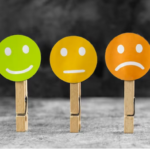Erectile dysfunction (ED) is a deeply personal and often misunderstood condition that affects millions of men worldwide. While the focus is typically on physical symptoms, the emotional toll of ED often goes unspoken. Beneath the surface lies a complex relationship between mental health and erectile dysfunction, a connection that, when understood, can lead to profound healing and a renewed sense of self.
In this article, we will explore how mental health impacts ED, how ED can, in turn, affect mental well-being, and what steps you can take to reclaim control over both your mind and body.
You Are Not Alone: The Emotional Weight of Erectile Dysfunction
For many men, ED feels like a personal failure, a blow to their identity and masculinity. It can spark feelings of embarrassment, shame, or even fear of rejection, leading to a cascade of negative emotions.
You might find yourself avoiding intimacy with your partner, withdrawing emotionally, or questioning your worth. These reactions are natural, but they can create a vicious cycle where ED exacerbates mental health struggles, and mental health challenges make ED worse.
The first and most crucial thing to understand is this: you are not alone. ED is more common than you think, affecting men of all ages, backgrounds, and health statuses. And while it feels isolating, millions share your experience.
A natural way to treat ED, especially when it stems from a mental health condition, is through shockwave therapy for ED. Shockwave therapy was developed in the 1980s and has been FDA-approved for treating plantar fasciitis and other musculoskeletal conditions. Its use for erectile dysfunction is considered off-label but has shown promising results in improving blood flow and promoting tissue regeneration.
How Mental Health Impacts Erectile Dysfunction
Erectile dysfunction is often linked to physical factors like poor blood flow, hormonal imbalances, or nerve damage, but the mind plays a significant role in sexual performance. Conditions like anxiety, depression, and chronic stress can disrupt the intricate balance required for arousal and function.
1.Anxiety:
Performance anxiety—worrying about your ability to achieve or maintain an erection—can create a mental roadblock. The fear of failure triggers a stress response, releasing hormones like cortisol that hinder your ability to relax and enjoy intimacy.
2.Depression:
Depression drains your energy, lowers your libido, and clouds your sense of self-worth. It often manifests in physical symptoms, including difficulty achieving an erection, creating a double-edged sword of frustration and guilt.
3.Stress:
Chronic stress keeps your body in “fight or flight” mode, diverting energy away from non-essential functions like sexual performance. It also depletes mental resilience, making you more vulnerable to the emotional impact of ED.
4.Trauma:
Past experiences, such as childhood trauma or previous negative sexual encounters, can shape your relationship with intimacy and lead to psychological barriers in the present.
How Erectile Dysfunction Affects Mental Health
While mental health issues can lead to ED, the reverse is also true. The experience of erectile dysfunction can deeply impact your mental well-being, creating a cycle that feels impossible to break.
1.Erosion of Confidence:
Every instance of ED can chip away at your self-esteem, making you doubt your ability to perform or feel desirable.
2.Relationship Strain:
Intimacy is a cornerstone of many relationships, and ED can create distance, misunderstandings, or unspoken resentment. You may feel ashamed, and your partner might feel rejected, even if neither is at fault.
3.Increased Risk of Depression:
The emotional toll of repeated ED experiences can spiral into feelings of hopelessness, worthlessness, or despair.
4.Social Withdrawal:
Men experiencing ED often avoid social or romantic situations, isolating themselves to avoid potential embarrassment.
Breaking the Cycle: Steps Toward Healing
Healing from ED requires a holistic approach that addresses both the physical and mental aspects of the condition. Here’s how you can start:
1. Acknowledge Your Feelings
The first step is allowing yourself to feel and express your emotions without judgment. Talk to someone you trust—a friend, partner, or therapist—and let them know how you’re feeling. You don’t have to face this alone.
2. Seek Professional Help
•A mental health professional can help you navigate the emotional impact of ED, using techniques like cognitive behavioral therapy (CBT) to challenge negative thought patterns.
•A medical doctor or urologist can assess whether your ED has a physical cause and recommend treatments like medication, devices, or lifestyle changes.
3. Improve Communication with Your Partner
Open conversations about ED can transform your relationship. Let your partner know how you feel and work together to find solutions, whether that means exploring new forms of intimacy or seeking therapy as a couple.
4. Address Stress and Anxiety
Incorporate relaxation techniques like meditation, deep breathing, or mindfulness exercises into your daily routine. These practices can reduce stress hormones and improve your overall mental health.
5. Adopt a Healthy Lifestyle
•Exercise regularly to boost blood flow and release endorphins.
•Eat a balanced diet rich in whole foods, lean proteins, and healthy fats to support both physical and mental health.
•Prioritize sleep, as fatigue can exacerbate ED and emotional struggles.
You Are More Than This Condition
Erectile dysfunction does not define you. It is a condition—a challenge to be met with compassion, courage, and action. By addressing the mental health aspects of ED, you can begin to heal, reconnect with yourself and your partner, and rediscover your confidence.
Remember, healing takes time. Be patient with yourself, seek support, and take steps toward a brighter, more fulfilling future. The path may not be easy, but it is one worth walking.




